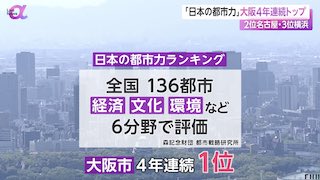TOKYO, Oct 12 (East Asia Forum) - The Japan–EU joint statement cites a memorandum calling for in-depth cooperation on an early warning mechanism for the semiconductor supply chains, research and development for semiconductors, advanced skills for the semiconductor industry, use cases of semiconductor applications and subsidy transparency.
Taken together, it appears that both Tokyo and Brussels are invested in novel exploration of coordination of industrial policy.
It is unlikely that either will become a dominant force in the semiconductor industry, but both have the potential to develop specific cutting-edge technologies. Their current competitiveness resides in the design and high-end semiconductor manufacturing equipment for Europe and some chemical materials, wafers, optic equipment and other manufacturing equipment for Japan.
But technological development and turnovers of leading firms occur extremely fast in this industry, making it near impossible to predict what the competitive situation will be in the coming years. Developing a thick industrial agglomeration seems to be the most promising way to amplify technological competition, and that is why countries such as the United States look to subsidy competition.
Japanese and European Union policymakers hope to compete in this space and also provide subsidies, despite concerns about a low probability of success as well as possible inconsistencies with existing trade norms.
But government-to-government coordinated industrial policy may not be easy. Private firms, not governments, possess most of the important technologies and production knowhow. Firms may not want to share information lest they jeopardise proprietary technology and business secrets. Although Japanese trade officials have already begun reaching out to key companies to advance the Japan–EU Digital Partnership, they must recall the failure of government-led cooperation among private firms in the 1980s and 1990s.
International coordination will be even more difficult. The European Union has the additional challenge of bridging between super-government structures and each member state. Subsidies may give the governments some grip on the private sector, but not necessarily in the middle and long-term perspectives. Internationally coordinated industrial policy is a courageous idea but may not work fully.
As for rules on the digital economy, the Japan–EU joint statement seeks to elevate cooperation in various international forums. Brussels accepted the concept of ‘Data Free Flow with Trust’ to ensure the free and trusted flow of data across borders underpinned by strong data protection rules’ in the joint statement.
This move will likely go some way toward deepening cooperation with Japan. Like many Asia Pacific countries including Australia, Japan subscribes to the US model in which the free flow of data is regarded as the prime principle and enforces this concept with a series of backup policies to take care of economic and social concerns, illustrated by a policy brief at Japan’s 2019 T20 event.
The European Union has typically taken a different approach by prioritising personal data protection and setting up the General Data Protection Regulation to enforce strict data localisation requirements. In negotiations for the 2019 Japan–EU Economic Partnership Agreement (EPA), the European Union did not accept the principle of the free flow of data and no data localisation requirements, which are at the core of the Comprehensive and Progressive Agreement for Trans-Pacific Partnership.
Harmonising these two approaches to data while at the same time maintaining clear separation with authoritarian data governance has been a critical issue. Both Japan and the European Union need to find a logical structure to accommodate the two models.
The immediate tests for rulemaking will be the progress in the Joint Statement Initiative with the World Trade Organization to seek a worldwide common denominator as well as the advancement of negotiations over data flow rules governed by the Japan–EU EPA. The two sides also pledged to pursue a constructive dialogue in the areas of trustworthy artificial intelligence, platform regulation, data governance and cybersecurity.
The governments are doing what they can do to advance Japan–EU cooperation. Semiconductor cooperation remains a steep undertaking with an unclear path to success. A more promising area will be rule-making for the digital economy.















